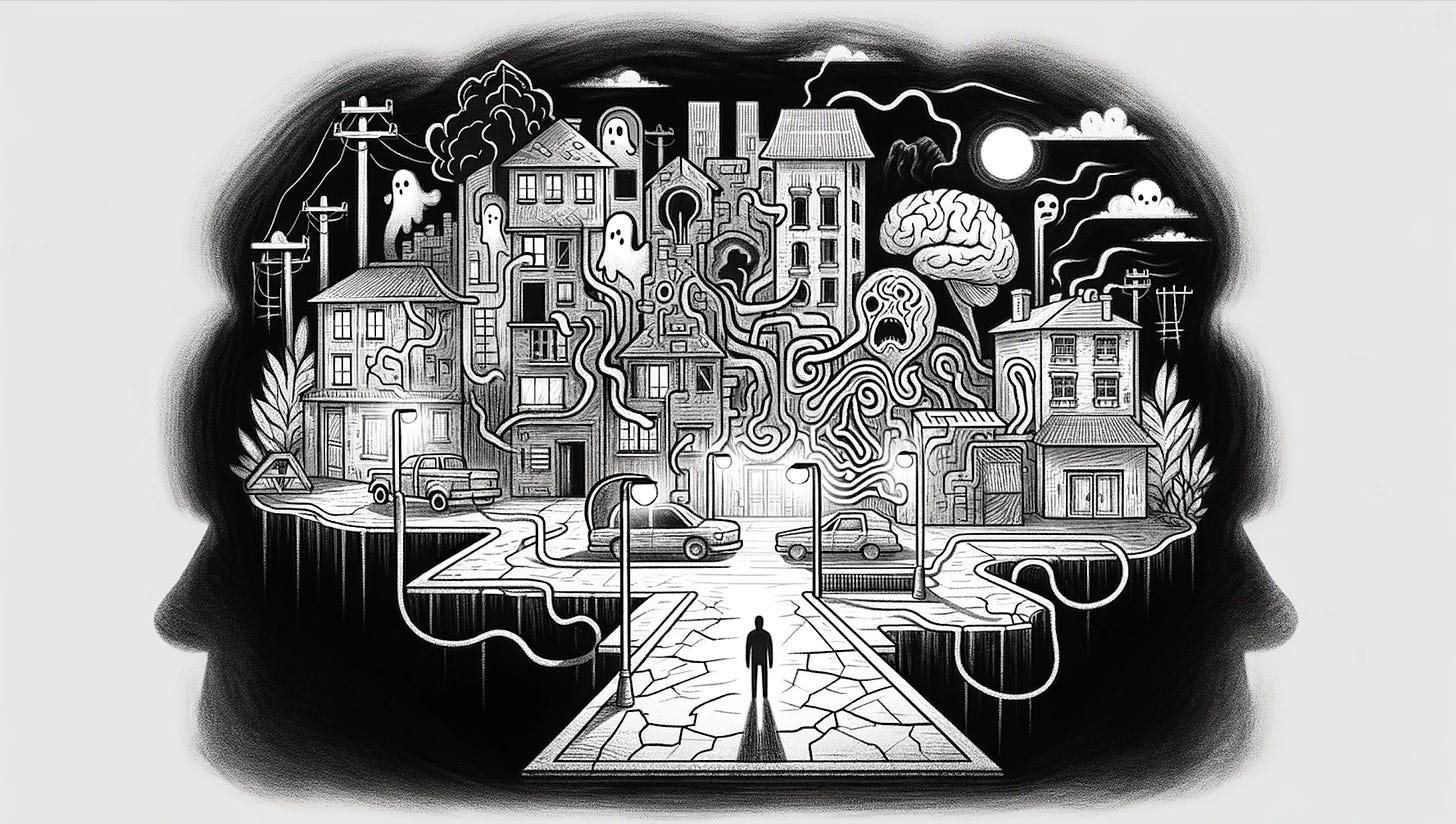In the book1 I'm currently reading, they referenced a saying used in twelve-step programs:
When I'm in my mind, I know I'm in a dangerous neighbourhood.
Yes, totally. As a rule of thumb, when I stop feeling my body while using my mind, I am not fully using my mind. I am just thinking from a dissociative, fear-constructed place, where I have numbed myself to the underlying fear because I have lost access to my body. The good news is, I think like this less often. I have a hard time thinking if I cannot feel my body.
All of my philosophical inquiries start with my body now. Whatever is “existentially salient,” i.e., what is bothersome or alive, is always my starting point. When I am in a philosophical inquiry with another, if I stop feeling my body, I know I’ve lost the plot of our inquiry. I avoid the tendency to build theoretical castles with others and instead try to anchor philosophizing in a real-life situation I can feel and deeply sense.
Many people’s minds are borrowed minds—a muddled mess of premises from various incompatible traditions and schools of thought, what
calls a “thought soup.” Other people's minds are true labyrinths, making them prisoners of their fear-inspired thoughts. Some of these mind prisoners manage to make their labyrinths coherent enough to seduce others into getting lost and locked in. These are the so-called “galaxy brains” who have developed various TOEs (theories of everything), secretly motivated by a desire to trap other minds, making the world feel less lonely for themselves.The foundation of the thought soupers or the galaxy brains is the same: fear-based thinking2. The former lazily grabs whatever idea makes them feel good, regardless of whether it is logically coherent with their other adopted thoughts. The latter impressively builds their TOE from an unexamined presupposition that serves as one fat bandaid for an unprocessed fear of life.
I do not belong to the “no mind club” either, the one where Buddhistic dilettantes demonize the mind as something entirely bad, basing their praxis on very debatable propositions. I like my mind, but it can be a dangerous neighbourhood. It becomes less dangerous when I dare to find out what in the body is motivating the impulse to think in the first place.
However, the best rule is to ensure your mind never becomes too alien to those you love. Do not allow your fear of losing their love to shape your philosophy; instead, allow their love to shape your philosophy.
The Stoa will host wisdom teacher Vivian Dittmar next week on May 30th at 12 PM Eastern for a session called “Thinking vs Feeling.” The event description:
Without using the power of thinking, we often end up acting irrationally. But without the power of feelings, we can't relate to the world as it is. How can we integrate both thinking and feeling into a holistic process without being thrown off course by emotional baggage? Author, speaker, and wisdom teacher Vivian Dittmar Brings clarity to these difficult questions, and offers practical methods for staying grounded and reasonable even in the face of life's biggest challenges.
You can also make your mental prison break at Collective Journaling, an embodied way to journal with others.
What is Collective Journalling? Our Zoom-based communal journaling session lasts 90 mins. It includes check-ins via chat at the start and optional breakout rooms for connecting at the end. We end with an optional chat sharing. Most of the session involves silent individual inquiry. A wonderful group has gathered for this practice. The practice occurs on weekdays @ 8 AM ET. RSVP behind the paywall.
Keep reading with a 7-day free trial
Subscribe to Less Foolish to keep reading this post and get 7 days of free access to the full post archives.




